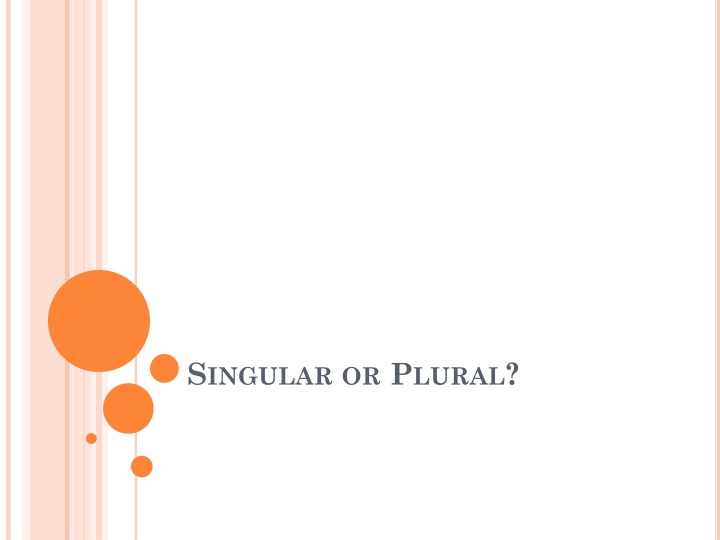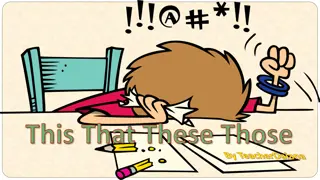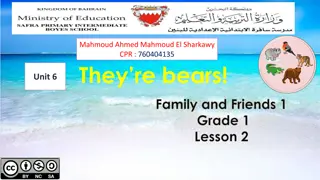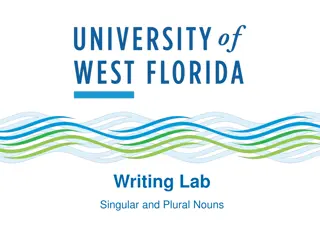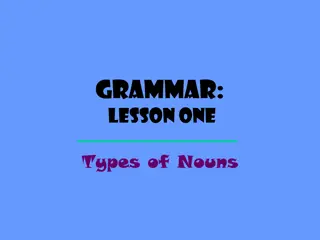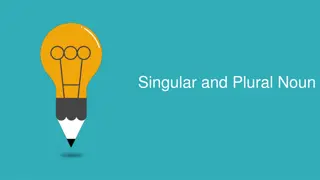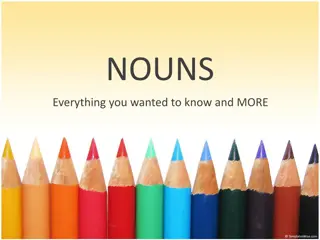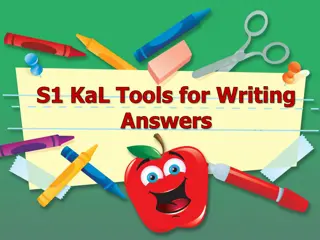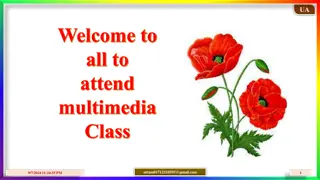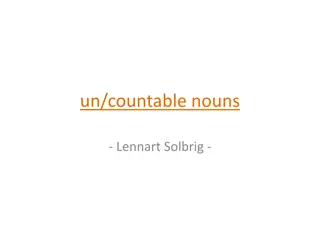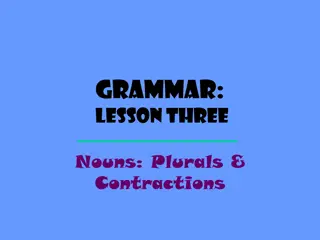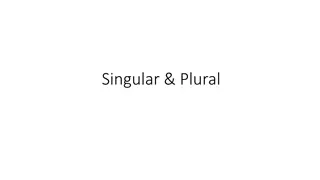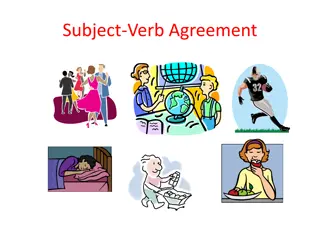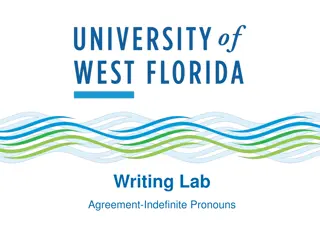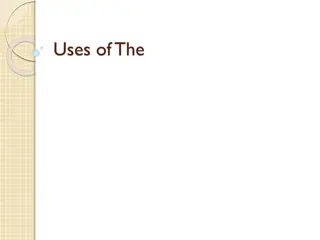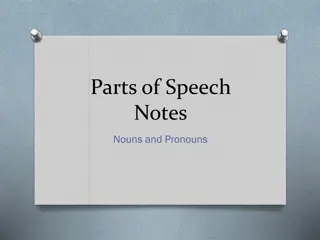Singular or Plural Nouns, Usage Tips and Examples
Learn about singular and plural nouns in English, including nouns used only in plural, nouns ending in 's' but not plural, singular nouns with plural verb usage, common examples, and how to use plural nouns with singular verbs for money, time, and distance. Understand when to use 'a pair of' with certain words and how to modify nouns as adjectives.
Download Presentation

Please find below an Image/Link to download the presentation.
The content on the website is provided AS IS for your information and personal use only. It may not be sold, licensed, or shared on other websites without obtaining consent from the author.If you encounter any issues during the download, it is possible that the publisher has removed the file from their server.
You are allowed to download the files provided on this website for personal or commercial use, subject to the condition that they are used lawfully. All files are the property of their respective owners.
The content on the website is provided AS IS for your information and personal use only. It may not be sold, licensed, or shared on other websites without obtaining consent from the author.
E N D
Presentation Transcript
We use some nouns only in plural. Trousers shorts pyjamas Jeans tights scissors Glasses/ spectacles You can also use a pair of with those words: I need some new trousers or I need a new pair of trousers
We do not often use the plural of person persons . Instead we use people : He is a nice person. They are nice people. These nouns end in s but they are not usually plural: Mathematics physics economics athletics gymnastics news Athletics is always my favorite sport. What time is the news on television?
Some singular nouns are often used with a plural verb Government staff team family audience Committee We often think of these things as a number of people ( they ) not as one thing ( it ). So we often use a plural verb: The government (=they) want to reduce taxes. The staff aren t happy with their new working conditions. A singular verb ( The government wants ..) is also possible.
Note that we normally use a plural verb with the names of sports team: Scotland are playing France in a football match next week. We always use a plural verb with the police : The police have arrested Tom. Are the police well-paid?
Sometimes we use a plural noun with a singular verb. We do this when we talk about a sum of money, a period of time, a distance etc: Five thousand pounds (=it) was stolen in the robbery. ( not were stolen) Three years (=it) is a long time to be without a job. ( not are )
We say a holiday of three weeks but a three- week holiday : I have got a three-week holiday in July. ( not a three-weeks holiday) Here, three-week is used as an adjective before holiday . When we use three-weeks as an adjective, it loses the s. So we say: A ten-pound note ( not pounds) Two 14-year-old girls A four-week English course A six-hour journey. You can also say I ve got three weeks holiday.
NOUNS In English there are: abstract and concrete nouns. An abstract Noun: is a type of noun that refers to something a person cannot physically interact with. It is an aspect, concept, idea, experience, state of being, trait, quality, feeling or other entity that cannot be experienced with the five senses.
Concrete nouns are people, places or things we would experience with our five senses. Tree River Crown Rain Beach Cake
